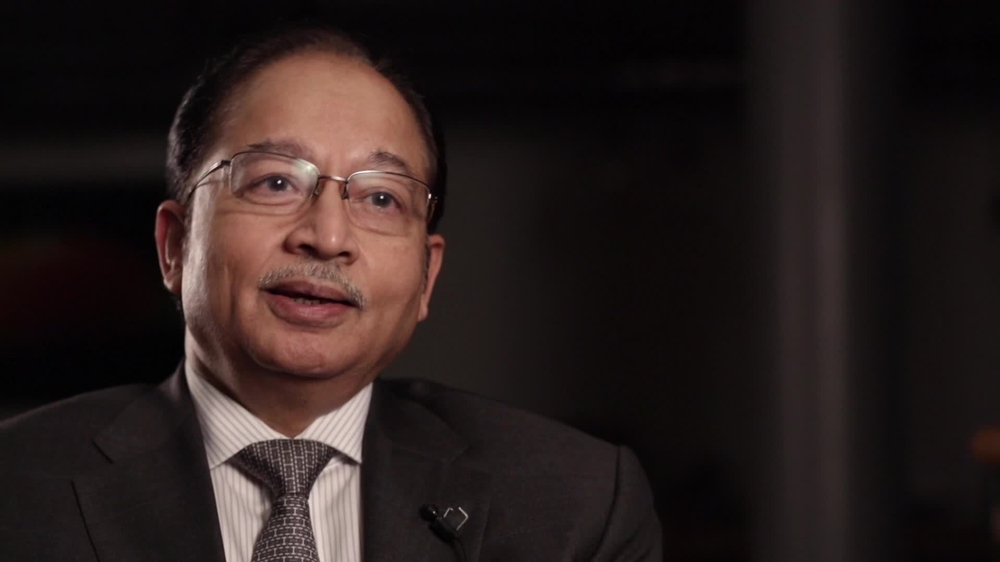Geneva/Stockholm - Several key policy changes are urgently needed at the Global Alliance for Vaccines and Immunisation (GAVI) Alliance to help reduce the number of children not benefitting from vaccination globally (22.6 million in 2012), Médecins Sans Frontières (MSF) said ahead of GAVI’s progress review meeting in Stockholm.
“We fully support GAVI’s mission of bringing new vaccines to children in developing countries, but we think that GAVI could improve its work in a number of areas so that more children can be protected from childhood killers,” said Dr. Manica Balasegaram, Executive Director of MSF’s Access Campaign. “Humanitarian actors are still not able to access vaccines at the GAVI price so they can act swiftly in emergencies, vaccine prices overall are still too expensive for countries to afford long term, and GAVI’s not doing enough to support the vaccination needs of older children.”
Four key areas where changes at GAVI could make an important difference
Making GAVI prices available to humanitarian actors
Currently, GAVI does not allow humanitarian organisations, such as MSF, to access its lowest global prices so that they can vaccinate people in crisis that are otherwise falling through the net. It took 11 months for MSF to navigate its way through bureaucratic hurdles to finally obtain the pneumococcal vaccine for use in children in a refugee camp in South Sudan where there was high child mortality. The fact that GAVI does not include non-governmental and humanitarian organisations in its price negotiations has resulted in refugees missing out on the benefits of new vaccines. GAVI should open its prices to NGOs and urgently move to develop a policy for facilitating use of new vaccines amongst refugee and crisis-affected groups of people.
Pushing harder to lower vaccine prices
The cost to fully vaccinate a child in the best-case scenario has risen by 2,700 per cent since 2001 (from USD $1.38 in 2001 to USD $38.80 today). Concern is growing among countries — many of which where MSF works — that they will not be able to afford these prices once they lose GAVI support over time. For example, Congo will lose GAVI support starting at the end of 2015, and will be forced to pay 20 times more for its new vaccines than it pays for the traditional vaccines. These high prices jeopardise the sustainability of immunisation programmes and could force governments to make tough decisions about which childhood killers they can and cannot afford to protect their children against. GAVI must do more to bring prices down by negotiating more shrewdly and transparently with the multinational pharmaceutical companies, and by helping speed up the market entry of vaccines from emerging producers.
Extending vaccination to children above one year old
Although the World Health Organization (WHO) recommends vaccinating children over 11months of age who may have missed their recommended vaccinations, GAVI today only purchases vaccines for routine immunisation programs for children up to one year old. This means that a child older than one year who arrives at a clinic and hasn’t completed their immunisation series would not be able to benefit from these lifesaving vaccines. This represents a missed opportunity to fully protect children against childhood killers, which often results in deadly outbreaks of preventable diseases. GAVI should revise its support to countries so that they can fully implement WHO recommendations.
Incentivising development of vaccines that don’t need to be kept cold the entire time
Today, the vast majority of vaccines must be kept between 2 and 8 degrees Celsius until they reach the child. This requires incredibly difficult ‘cold chain’ logistics for Ministries of Health and medical providers like MSF in places where temperatures easily soar above 40 degrees Celsius and where electricity supply is unstable or non-existent. The MenAfriVac vaccine against meningitis A was recently re-labelled, making it possible to keep the vaccine at up to 40 degrees Celsius for up to four days, greatly easing the logistics requirements in hot and remote places. More research needs to be done to investigate how other vaccines could potentially follow suit, to make it easier to vaccinate hard-to-reach children. GAVI must play a more active role in incentivising such efforts so that vaccines that are easier to use can become available.
Many GAVI accomplishments, but critical eye still necessary
“We think GAVI should be commended for many of its accomplishments over the last decade, but we also think it’s very important for GAVI to take a close and critical look at what it can improve going forward,” said Kate Elder, Vaccines Policy Advisor at MSF’s Access Campaign. “We believe an ambitious, inclusive GAVI that will fight hard to shape markets, products and prices, is essential in helping the world meet its immunisation targets and preventing disease in the most vulnerable.”

How can we reach more children with vaccines?
MSF vaccinated nearly 700,000 people for measles and nearly 500,000 for meningitis in 2012.


